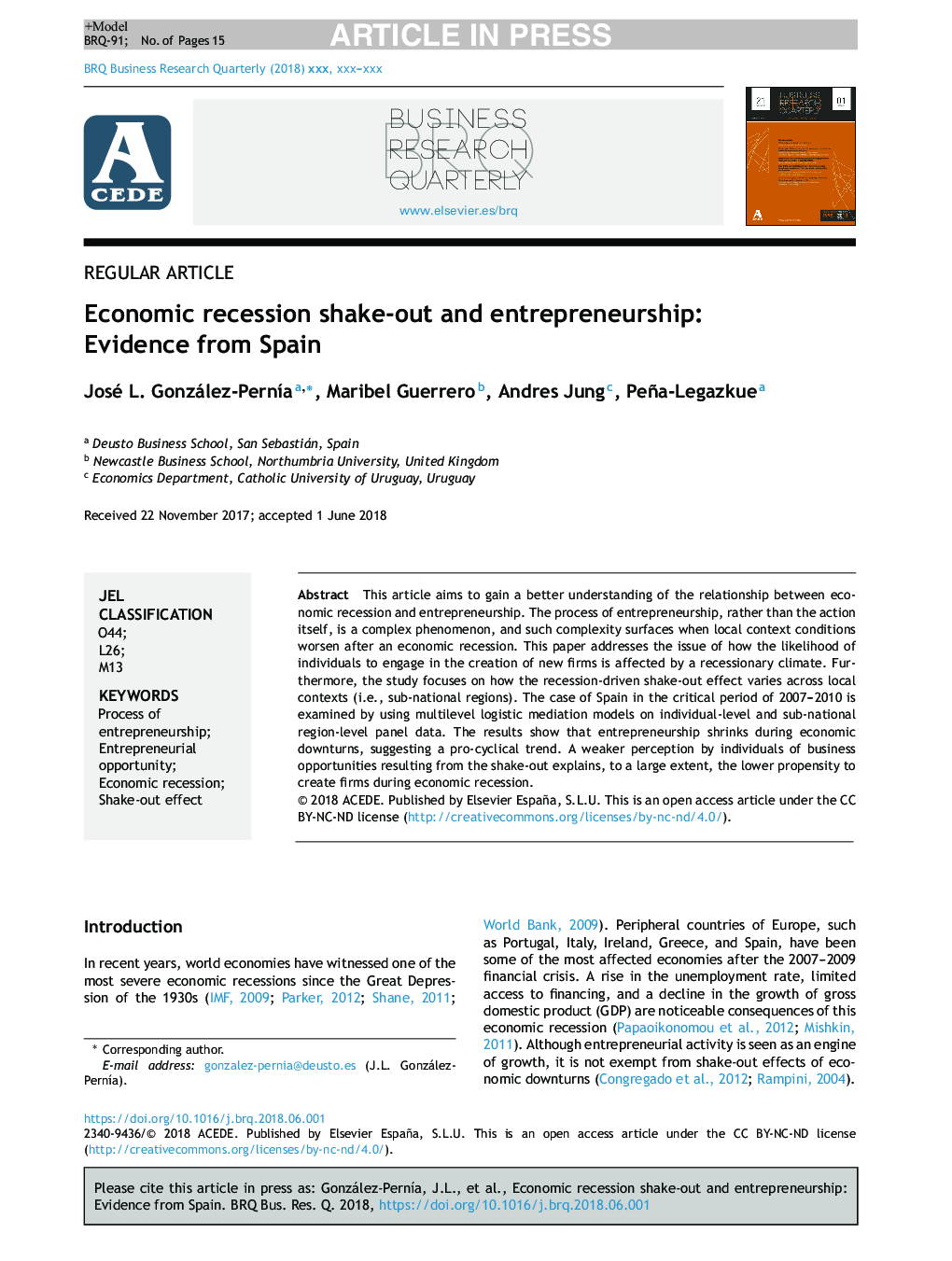| Article ID | Journal | Published Year | Pages | File Type |
|---|---|---|---|---|
| 7414701 | BRQ Business Research Quarterly | 2018 | 15 Pages |
Abstract
This article aims to gain a better understanding of the relationship between economic recession and entrepreneurship. The process of entrepreneurship, rather than the action itself, is a complex phenomenon, and such complexity surfaces when local context conditions worsen after an economic recession. This paper addresses the issue of how the likelihood of individuals to engage in the creation of new firms is affected by a recessionary climate. Furthermore, the study focuses on how the recession-driven shake-out effect varies across local contexts (i.e., sub-national regions). The case of Spain in the critical period of 2007-2010 is examined by using multilevel logistic mediation models on individual-level and sub-national region-level panel data. The results show that entrepreneurship shrinks during economic downturns, suggesting a pro-cyclical trend. A weaker perception by individuals of business opportunities resulting from the shake-out explains, to a large extent, the lower propensity to create firms during economic recession.
Related Topics
Social Sciences and Humanities
Business, Management and Accounting
Accounting
Authors
José L. González-PernÃa, Maribel Guerrero, Andres Jung, Peña-Legazkue Peña-Legazkue,
